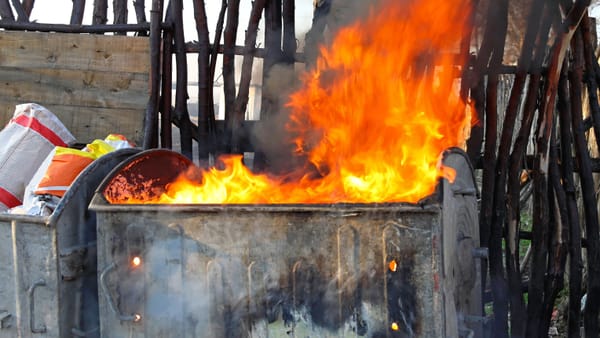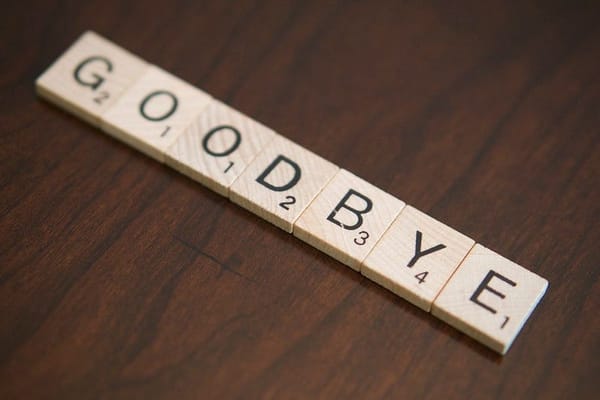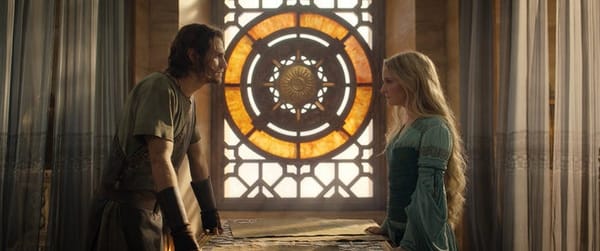Overwatch is single-handedly getting me through the pandemic
I returned to the game just in time to save my sanity.

I discovered Overwatch in the most cringe, egirl cliché way possible: through a boyfriend.
In the fall of 2016, I was in the midst of my first relationship after transitioning. We had our first kiss after attending the New England Revolution Fourth of July game, under the stadium’s fireworks. It was magical.
Besides our shared love of soccer, my new boyfriend was really into gaming. Without giving away too many details, his career was creating games and his latest obsession was Overwatch. A first person shooter game featuring a colorful cast of unique heroes. The core of the game is its competitive mode, which matches six players on each side battling on a series of maps with varying objectives: controlling a point on the map, or pushing a payload towards an objective.
There are incentives for improvement, with different skill levels rewarded with different ranks, from metal tiers from bronze to platinum, as well as diamond, master, grandmaster, and top 500.
It was a revolutionary game, that really helped put eSports on the map in a big way. The game’s professional league, the Overwatch League, broke new ground for televised eSports, with the 2019 semi-finals and Grand Finals being broadcast on ABC, a major American broadcast TV network. The league opens its 2020 season today, Friday, on YouTube.
Overwatch’s sweeping visuals captivated players, and their promotional animated shorts really draw in casual viewers.
I played Overwatch for the first time on Thanksgiving day in 2016. I visited my boyfriend for the long holiday weekend, with the intention of meeting his family on turkey day. But at the last minute, the boyfriend decided not to bring me along to his family’s Thanksgiving feast, worrying about how one of his brothers would react to my presence there as a trans woman.
It hurt. It was my first major holiday alone. I cried after he left me alone in his apartment.
With nothing else to do, I created an account to play Overwatch on and threw myself into the game.
I had played first person shooters long before my gender transition, but I hadn’t gamed at all in the year before I met the boyfriend. Years ago, I had been part of a gaming clan that played a competitive version, called tactical realism, of Call of Duty 2.
I was in my late 20’s but we had grown men in their 40’s and absolutely cracked teenagers who did things in the game with their ridiculous mechanical skills and young reflexes that I didn’t think were possible. I remember watching our team sniper with envy as he pulled off clean quickscopes, A move where a player lines up a shot as they raise their scope and shooting all in one motion, in a matter of a split second. I could never do it.
We played for years, well after the game had died.
I wasn’t the best player, struggling with my aim, but I had a head for tactics and would often lay out my team’s tactics during scrims, and be the team shotcaller.
But by late 2016, my gender transition was well underway and I had left my clanmates long behind. I hadn’t played a computer game in ages by that point.
Though I only had some semblance for how to play Overwatch, having watched my partner play a little bit the day before, the game was new and exciting for me. And I wanted to qualify with a higher rank than my boyfriend, mostly out of spite (he was a bronze player at the time).
After an entire day playing the game as Hanzo, a Japanese archer that my boyfriend said took too much skill for me to play, I finally did it, qualifying in silver. I’ll never forget the slack-jawed look on my boyfriend’s face when I told him. I let him watch me play a game and still remember his shocked look after I jiggle peeked and headshot an enemy from across the map on Route 66.
For the rest of that fall, I played the game almost daily, even though I wasn’t very good. Then both my relationship and my desktop computer died, and I was too busy with my burgeoning writing career to get it fixed.
Late last year, before she moved away, I asked my best friend to fix my computer. After ordering some key parts, and wiping the hard drive clean, she was able to get it running again.
One of the first things I did to test how it ran was to reinstall and play Overwatch. I had casually followed Overwatch League the previous season (when GOATS was meta) whenever there wasn’t anything more interesting on TV, but I hadn’t played much at all. The teamwork side of the game drew me back in. But my laptop wasn’t really able to run the game smoothly enough to make it enjoyable.
When I fired it up again, the game had changed a bunch since its early days, there were new characters I didn’t know what to do with (seriously a hamster inside a giant wrecking ball? Who thinks of these things??) I wasn’t hooked again right away, my writing career and related travel made keeping a regular playing schedule impossible but at least it appeared my crappy desktop was working again.
And then the pandemic hit.
The earliest days were so filled with hope and dread. I didn’t live in New York City, where the pandemic hit the US first, and I quietly held out hope that my city, Washington, DC, wouldn’t experience the worst of it. The early chatter around the virus was that lockdown would last a few weeks, and then we wouldn’t need to think about this virus again, so I dutifully locked down.
The boredom was palpable, and I threw myself into entertaining myself. I started by binging all the Marvel movies in release order. Then I watched them all again by chronological order. Then I binged Breaking Bad again. It hit differently now after my transition than it had years ago. I streamed most of my friend’s and Twitter followers’ binge recommendations.
Lockdown didn’t end, however. And suddenly I was binged out, with nothing more of interest to watch.
As the loneliness and boredom sunk in, I once again turned to Overwatch. I was rusty but it was fun when there was nothing else to do. After playing everyday for a few weeks straight, I felt myself starting to get better at the game.
Now stuck at home all day, I wanted to see if I could climb out of the bronze rank I’d been stuck in almost since day one.
What I didn’t expect is finding a fulfilling hobby from a wonky, unbalanced, and frequently toxic game and community in the middle of a global pandemic.
It’s embarrassing to admit now but I had never before thought of looking through YouTube for videos on how to get better at a video game. But now that I was stuck in my apartment all day, every day, and having watched everything I ever wanted to watch, I began searching out content for the game in hopes of getting better.
British Overwatch content creator Stylosa was my gateway into the community. Stylosa produces a series of regular videos critiquing user-submitted gameplay videos called “VODs,” and frequently finds humor in between useful bits of coaching. His aim guide made me realize that the reason I could never aim well in first person shooters dating back decades was because of my mouse settings. I don’t know why I never discovered this before.
A few mouse adjustments later, and suddenly Overwatch became much easier. Soon, YouTube’s algorithm was recommending other Overwatch content creators and streamers, like former Dallas Fuel coach Jayne, and Romanian Ana god ML7.
I decided I wanted to take on Ana, an 60-year-old Arab mom and a sniper healer, as my “main,” the hero I most often play. Ana’s kit is super fun to play with. She can put enemies to sleep with a shot from her sidearm, and she can lob a nade into the enemy team that prevents them from being healed for several seconds.
I became a regular viewer of Canadian streamer KarQ, an Ana main who even did a VOD review of my play earlier this year.
What excited me most about playing on Ana is that you have to be able to quickscope to play her at a decently high level, a skill that evaded me for literally decades. But with pandemic free time, I suddenly had time to practice, and now I’m quickscoping and hitting flickshots with relative ease.
The thing that hooked me is that I could feel myself getting better at the game. I could feel my 38-year-old body’s fine motor skills developing in a way I hadn’t felt since I was a high school athlete. The feeling was intoxicating.
But I quickly realized I had another problem.
Overwatch can be a lonely game and I hadn’t seen any of my in-real-life friends in months. Even though it currently has about 10 million active players, you get randomly assigned teammates and opponents of similar ability and geographic area in each new match.
There were a few people I played with who complimented each other’s play, like a random teenaged Genji main who appreciated my Ana’s nanoboosts, an ultimate ability which gives the recipient a 50 percent buff in damage dealt and a 50 percent damage taken reduction. But none of my random duos lasted longer than a month or two.
I ended up putting out several calls on Twitter for other North American PC players in high bronze and low silver. About a dozen people responded, and I added them as “friends” on Blizzard’s gaming app. Two in particular, Abby and Serena, played more frequently than the others.
The three of us have played nearly every day for the last 10 months, through ragequits, transphobic teammates, and completely random and hilarious game moments. What started as a desire not to play by myself turned into two close friendships.
I hope to meet them both in person when Covid is over.
While playing, and now often in between, the three of us have shared significant life moments together, like submitting for a legal name change, virtually. We’ve had deep conversations about life as trans women, about anxieties over surgeries or relationships all while fragging out as an Overwatch trio, Serena as my team’s other healer or main tank, and Abby doing damage in the DPS role.
Each of us have improved dramatically at the game over time, but the friendships we’ve developed have been much more valuable.
It’s a meme come to life: maybe the real Overwatch was the friends we made along the way.




